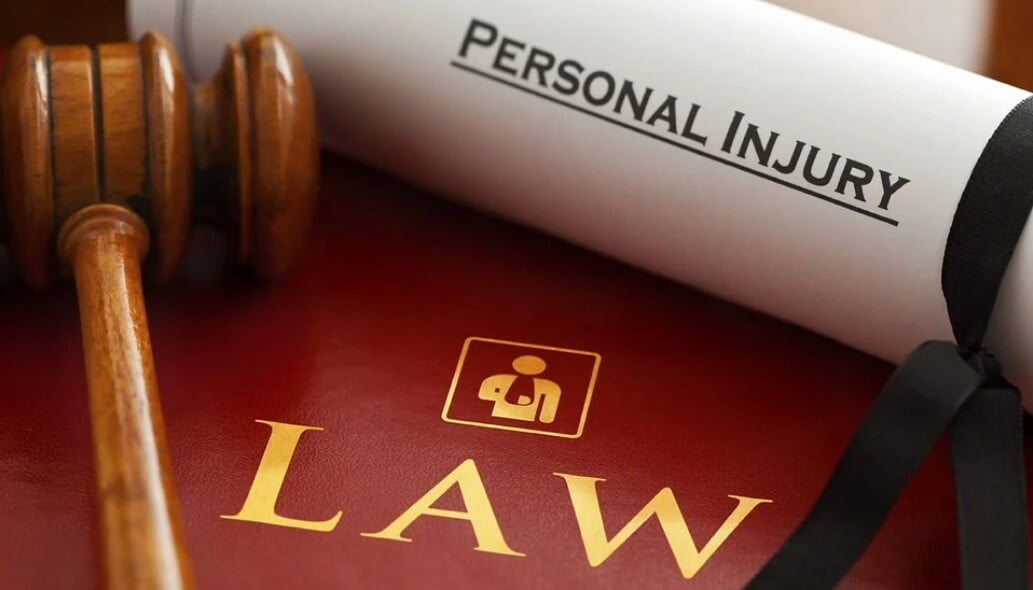When you need compensation after a personal injury accident, you must have the proper evidence. Without evidence, you can’t prove your right to compensation.
In the immediate aftermath of an accident, it can be hard to know where to begin to gather evidence. A personal injury attorney can work with you to evaluate the evidence you need, collect it, and present your case.
What Is a Personal Injury Claim?
A personal injury claim is a formal legal demand for compensation. It occurs when a person is hurt because of the actions of others. Even simple carelessness can be the basis of legal liability. A personal injury claim calls the responsible party into court to determine legal liability and what the victim may recover for their injuries.
Beyond common accidents, personal injury claims also encompass complex cases involving environmental contamination or defective products. For instance, individuals exposed to harmful chemicals like PFAS, often dubbed ‘forever chemicals,’ are increasingly filing lawsuits against manufacturers.
These cases highlight how corporate negligence can lead to widespread health issues and significant legal battles. Understanding the scope of such litigation is crucial for affected parties looking to pursue justice and compensation. To get the latest news on national PFAS lawsuits, staying informed about ongoing developments is key.
How Can Victims Make a Claim to Recover Their Damages?
Victims can recover damages after an accident by identifying the responsible party, bringing a legal claim, and proving their case. It’s not enough to know that you deserve financial compensation or even to start a case. You must gather admissible evidence to recover damages.
A victim may hire a personal injury lawyer to represent them through all the steps involved in recovering damages.
What Types of Evidence Can Be Submitted?
Your personal injury attorney begins your claim by reviewing the types of evidence that can be submitted. Most people think of eyewitness testimony when they think of evidence. However, there are lots of different kinds of evidence that may be critical to your claim. These include:
- Physical evidence – Tangible objects are physical evidence. A broken railing, a branch in the walkway, or even a motor vehicle can be physical evidence.
- Documentary evidence – Documents that you can hold in your hand can be admitted into court. A document might be an incident report, a written statement, or bills.
- Electronic evidence – Sometimes, records come in electronic form. Rules of evidence allow parties to submit electronic evidence into court as long as it meets requirements for authentication of electronic evidence and other requirements.
- Testimonial evidence – Evidence that comes in the form of testimony is especially powerful. Witnesses can speak to what they have observed. In addition, an injury victim may use experts to help explain technical or confusing information.
- Demonstrative evidence – Models and displays can be used to help the jury understand and analyze information. Video animations, posters, and other displays can be helpful to explain your story to the jury.
What Evidence Is Required To Prove My Personal Injury?
The evidence required to prove your personal injury may include any of the following:
Official Report
- Submit Police Report
- Report By other Law Enforcement Agency
- Private Investigation Report
- 911 Dispatch Call Recording
- Accident Reconstruction Reports
- By-Law Enforcement
- By Your Attorney
There are a number of situations where the police may investigate a personal injury accident. Car accidents are a common example. Even if the police don’t investigate, another party may investigate and prepare an official report.
Your personal injury attorney knows how to navigate questions of hearsay and how to best use the official report to your advantage.
Photos, Videos & Audio
- Take Photos of the Scene
- Photos of Injuries
- Property damage
Photos, videos, and audio can be powerful evidence. Be sure to be aware of authentication requirements that must be followed in order to present the evidence in court.
Statements and Notes
- Witness Statement
- Victim Statement
Witnesses may put their statements into writing. Evaluate these statements for valuable points that can help prove your case. In addition, inconsistencies with other accounts and testimony can be highlighted as needed to question their credibility and make your case.
Medical Statements
- Initial Doctor’s Examination
- Specialist’s Report
Some medical statements come from treatments and evaluations that you receive right after your injuries. Other evidence may be prepared through expert evaluations to determine the extent of long-term medical damages and future recovery.
History and Research
- Evidence of past violation
- Vehicle History
It’s essential to understand what happened in the time leading up to the accident. Previous incidents can show knowledge of the dangerous condition and negligence that may give rise to legal liability.
Insurance
- Your insured card
- Other’s party Insurance Information
Insurance and the terms of an insurance policy can be critical factors in any personal injury case. The insurance policies in play in the claim can provide a welcome resource for a suffering victim.
Pay Stubs and W2 Forms
- Wages Lost by the Victims
Part of the compensation that you can claim for a personal injury case is lost wages. To succeed in receiving lost wages compensation, you can provide wage statements including W-2s, taxes, and pay stubs.
Lost career paths may be shown by employee records and evidence of education and training.
Bills and Invoices
- Hospital and Medical Expenses
- Repair Invoices and Bills
- Estimated costs incurred by the victims
- Recipients of payments
Expenses for medical care can be documented with invoices and bills. Verification of costs of care is vital to establish both economic losses as well as the severity of injuries for pain and suffering compensation.
How Can Hiring a Law Firm Help With My Personal Injury Case?
Gathering the evidence and presenting it effectively is critical to achieving the results you’re looking for in your case. An attorney for personal injury cases has the training and experience to identify, gather and present evidence. They understand what types of evidence may be present in your case.
It’s important to work quickly to preserve evidence. Part of the process can be immediately talking to witnesses before memories fade. It can be equally essential to preserve photos of the damage and even tangible objects that can tell the story.
When you hire a law firm, you’re working with an experienced professional who can handle the complexities of gathering evidence in your case.
They know how to evaluate the case to understand what’s most important. They understand complicated rules of evidence and ensure that the court allows the jury to hear the evidence. Finally, they present the evidence in a way that the jury can understand. When you hire a lawyer, they can collect these pieces of evidence and help you win your case.







